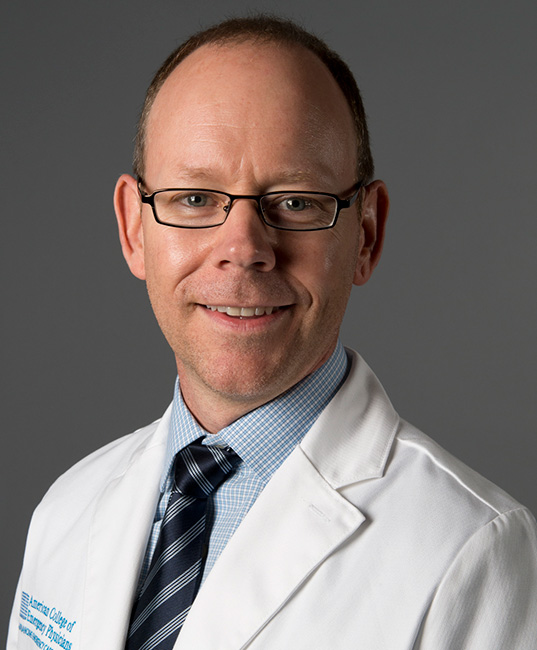President's MessageJune 2024
Just as I was beginning to think about the upcoming summer, vacation with my family, and escaping the Austin heat in Barton Springs, my colleagues and I had the unfortunate "pleasure" of going back in time. Our hospital system suffered a cyber-attack which rendered inoperable our electronic health record (EHR), internet, phones, and basically all electronic communications within the hospital. Much to our dismay, we quickly learned that the downtime procedures we had in place were no match for being back in the dark ages. On a normal day, like most ED's, we operate in relative chaos with limited resources to provide our community’s safety net. With all the focus on door-to-doc and dispo times, percent left without seen, and the myriad of other metrics, I never stopped to think how amazingly efficient we all actually were at providing care for our patients...until we weren't. Almost instantaneously it was painfully obvious that the level of care demanded of us cannot exist without our electronic systems. With the entire hospital now back on paper, critical information about patients could only be obtained with hands on a physical chart. Labs were all printed one study at a time and sent through the pneumatic tube system. We were operating only in the present, no old labs/records/ekgs with which to compare. No old physical charts sent to the ED from medical records either as was the case prior to the EHR. Prescriptions no longer could be sent electronically or printed. Painfully, we remembered how time consuming it is to discharge a simple COPD exacerbation with nebs, steroids and an antibiotic, on top of creating your own discharge instructions and return precautions all by hand. At night, I commiserated with our hospitalists about the painful blisters we all rapidly developed on our fingers from writing. The latest ED coding update with MDM as the key component is perfect for a system which uses dictation, not for handwriting paragraphs with newly blistered fingers. Doctors’ handwriting was suspect 20 years ago, and it hasn’t improved with the dawn of electronic charts and dictation. Now, after a brutal 4 weeks, we are thankfully back to our normal more functional disaster mode in the ED. With this, the retrospective discussions have begun, with the underlying theme of preparation. Be prepared the Boy Scouts taught me…no, seriously, be really prepared. They weren’t kidding. When things are functioning, we tend to lose sight of how we got to where we are. History blurs and fades, leaving us with little to no memory of lessons learned. Winter storm Uri reminded many of us to stock extra water and food basics and have alternative heat sources. Vaccines have made many complacent about infectious diseases. Basic sanitation and clean water did not just appear overnight. We have become so efficient in EM with our electronic systems and hardly even noticed due to increased demands. For me personally, and many of my colleagues, this cyber-attack created the worst 4 weeks of our careers in EM. Bringing our own printers and laptops, resurrecting old signature stamps, ordering triplicate pads, preprinting order sets and prescriptions, bringing clipboards and stickies to organize labs and radiology reports all helped…a little. But this was a complete system disaster which required an enormous team effort to survive. There were numerous things we as individuals, as a group, as a hospital, and as a community could have done in preparation to help mitigate the chaos, but in the end, it was going to be a disaster, regardless. And when you can’t possibly prepare for every contingency you will face, what do you do? Get insurance. Own-occupation disability insurance, life insurance, health insurance, car insurance, homeowners’ insurance, umbrella policies. We protect our families and our lively hoods with insurance, but how do we protect our practice of emergency medicine? While hospital systems need to be held accountable for better preparation and insuring against cyber-attacks for patient safety, we are the only ones who will look out for our docs and our specialty. Through our larger membership organizations like TCEP and ACEP we consolidate and amplify our collective voice to effect change, as well as prevent disaster. Our college works in the background as the insurance which strives to provide a safe and sustainable work environment where we can take care of patients and be reasonably compensated. The best insurance not only makes you whole after a disaster but helps prevent those disasters from even occurring in the first place. To paraphrase TCEP past president Bobby Greenberg, most people don’t buy a car based on the quality of the brakes, but you sure want them to work when someone steps out in front of you. Much of our progress in organized emergency medicine over the years comes from the selfless volunteerism of our colleagues, but we cannot rest on our laurels and their hard work. We must continue to grow our membership base and show our colleagues the value of involvement in organized emergency medicine beyond the bedside. An insurance policy is only as good as the collective strength and numbers of the insured. And with that, it’s off to the Springs for a refreshing (cold!) dip. I wish you all a happy, fun, and safe summer. Thank you for all you do and your continued support of TCEP/ACEP. Doug |

